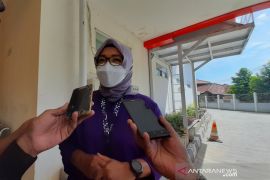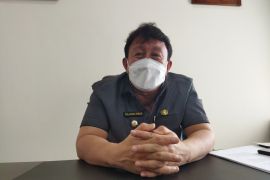"If in the future, there is a mutation, theoretically and historically, it is quite difficult for a variant to eventually return to the state it was at the start of the pandemic. The possibility is small," Budiman noted in a virtual statement here on Tuesday.
He cautioned that the endemic of COVID-19 did not mean that the virus that caused the cases had disappeared. The declining mitigation system in Indonesia opens up the possibility for the SAR-COV-2 virus to continue to mutate.
As long as there is still infection, Budiman said there is a chance of mutation of SARS-COV-2 in several areas due to the effect of reinfection in the community.
"However, the impact does not pose a serious potential because mutations that have a serious impact are mutations that cause significant severity or death," he remarked.
"This means that the virus can penetrate the immune barrier, both hybrid and vaccinated. That has not happened now," he further noted.
Budiman explained that the immune system is a very complex system in the human body, so it is not easy for a virus, which is not new anymore, to trigger a more serious impact.
However, he is wary of mutations in the MERS variant or the SARS virus that first surfaced in the world.
"If MERS or SARS mutate, it can have a serious impact," he emphasized.
He appealed to the public to not panic, as the current mutation of COVID-19 does not have a serious impact. However, he appealed to at-risk groups to remain vigilant by carrying out booster vaccinations.
In addition, the general public is advised to prevent transmission by wearing masks, avoiding crowds, and improving the air quality.
"That is important to prevent mutations that can be detrimental," he stated.
On a separate occasion, spokesperson for the Indonesian Ministry of Health Mohammad Syahril noted that the scientist's report on the finding of the most mutated version of COVID-19 in Indonesia was proof of the existence of SARS-CoV-2 in the midst of an endemic.
The variant in question is a derivative of the Delta variant strain that was taken from a patient's swab in Jakarta.
"We always say that COVID-19 is still around, and the possibility of mutating is still there. We always urge the public to remain vigilant even in this endemic era," he stated.
As long as the vaccination is going well, Syahril said the public does not need to worry about any variants that appear, unless there is a large enough gap between the number of variants and vaccine recipients.
Warwick University virologist, Prof. Lawrence Young, found 113 mutations of the Delta variant from a COVID-19 patient in Jakarta.
"This virus continues to surprise us and complacency is dangerous. It highlights the problems of living with the virus," Young told Daily Mail on July 30.
The virus from the patient was submitted to the global genetic research database in early July, and the virus is believed to be from a chronically infected case.
Related news: Free COVID vaccinations to end on Dec 31: Health Minister
Related news: Music festivals' success indicates post-pandemic recovery: Minister
Related news: Health Ministry urged to anticipate EU.1.1 variant to prevent entry
Translator: Andi Firdaus, Katriana
Editor: Azis Kurmala
Copyright © ANTARA 2023












